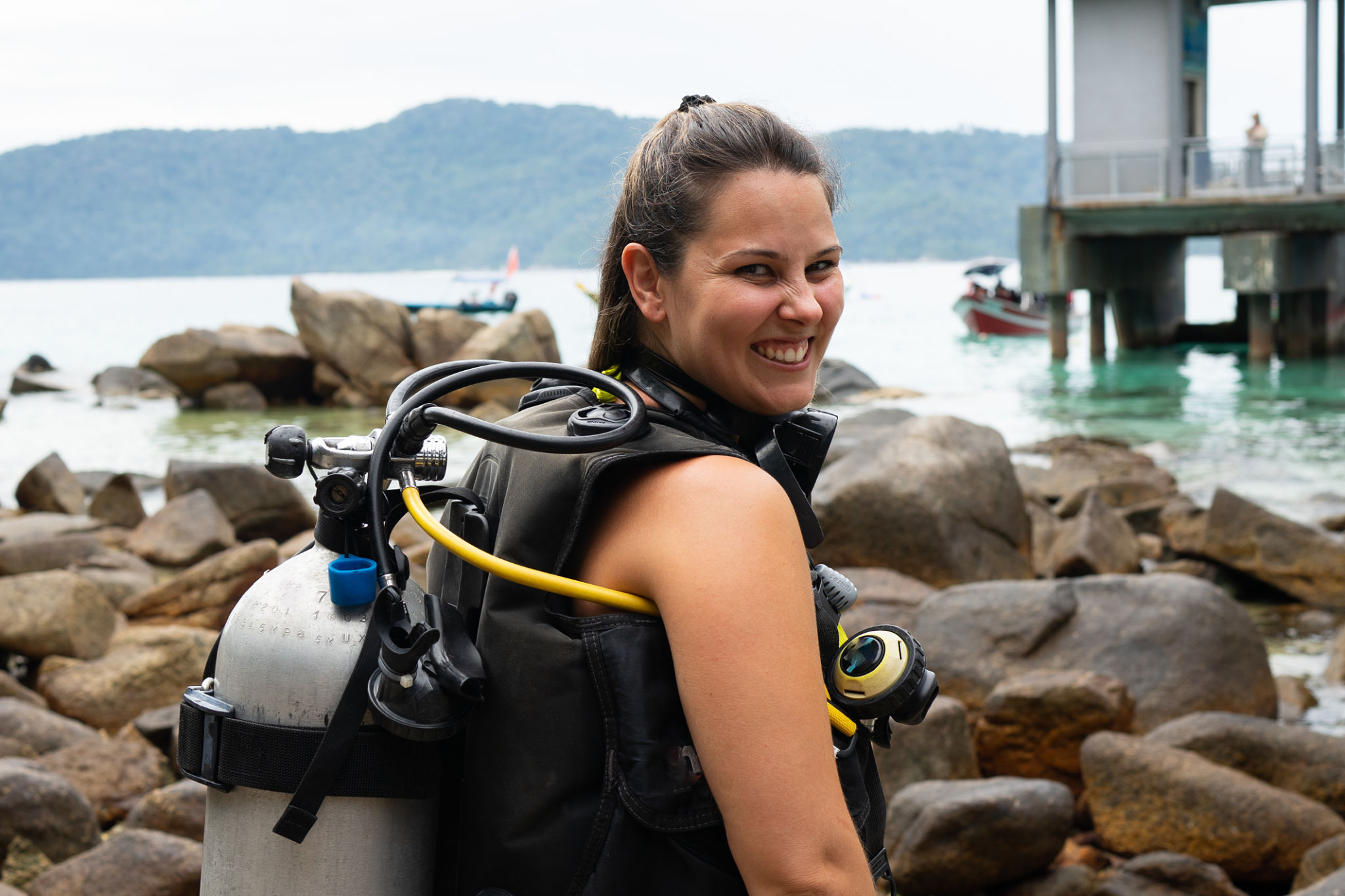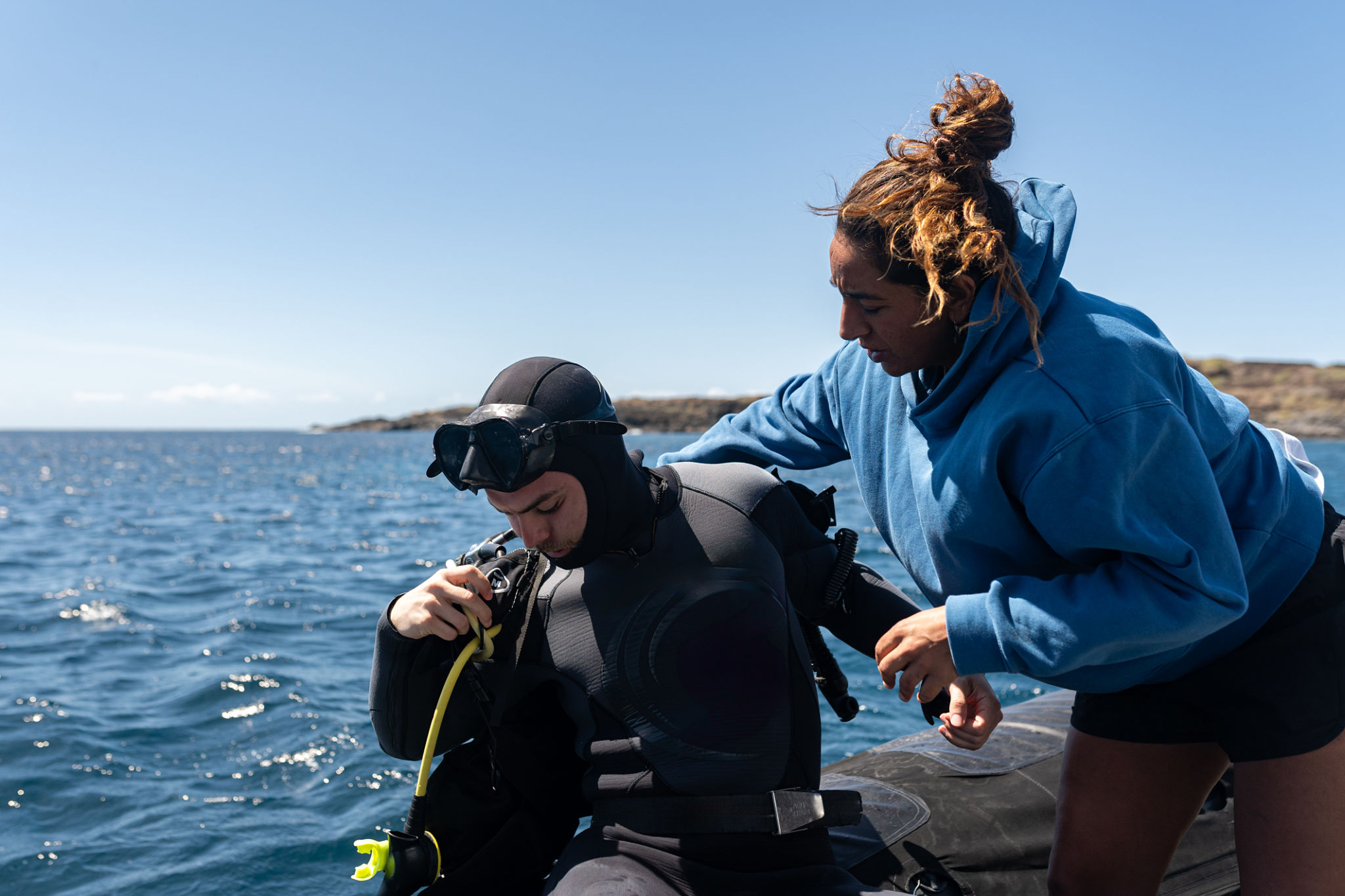How to Prepare for Your First Scuba Diving Lesson at Weekly Diver
Understanding the Basics of Scuba Diving
Embarking on your first scuba diving lesson is an exhilarating experience. Before you dive in, it's essential to understand the basics of scuba diving to ensure a safe and enjoyable experience. Scuba, which stands for Self-Contained Underwater Breathing Apparatus, allows you to explore the underwater world with the help of specialized equipment.
The first step in preparing for your diving lesson is to familiarize yourself with the equipment. This includes the mask, snorkel, fins, regulator, buoyancy control device (BCD), and the tank. Understanding how each piece works will help you feel more comfortable when you're in the water.

Choosing the Right Gear
Choosing the right gear is crucial for a successful diving experience. It's important to select equipment that fits well and is comfortable. Ill-fitting gear can cause discomfort and even lead to accidents underwater. When selecting your mask, ensure it provides a good seal around your face without being too tight.
Your wetsuit should fit snugly but allow for a full range of motion. The fins should be comfortable and easy to kick with. Remember, renting gear from a reputable dive shop can be a good option if you're not ready to invest in your own equipment yet.
Preparing Physically and Mentally
Scuba diving can be physically demanding, so it's important to be in good health. Engage in regular exercise to build stamina and strength, particularly in your legs and core. This will help you move more efficiently in the water and reduce fatigue.

Mental preparation is just as important as physical readiness. Stay calm and focused, and remember that it's normal to feel nervous before your first dive. Take deep breaths, visualize a successful dive, and trust in the training you'll receive from your instructor.
Understanding Diving Safety
Safety is paramount in scuba diving. Before your lesson, familiarize yourself with basic safety protocols. This includes understanding hand signals used underwater, knowing how to check your equipment, and being aware of potential hazards like currents or marine life.
Always dive with a buddy and stay close to your instructor during your lesson. They are there to guide you and ensure your safety. Make sure you understand how to communicate underwater using hand signals, as this will be your primary means of communication.

What to Expect During Your Lesson
Your first scuba diving lesson will likely take place in a pool or other controlled environment. This allows you to get comfortable with the equipment and practice essential skills such as breathing through the regulator and clearing your mask without the added pressure of open water.
Your instructor will guide you through each step, ensuring you understand the techniques and can perform them confidently. Take this time to ask questions and practice as much as possible. Remember, it's okay to make mistakes; learning from them is part of the process.
Post-Lesson Tips
After your lesson, it's important to review what you've learned while it's fresh in your mind. Take notes on any areas where you felt unsure or need more practice. Discuss these with your instructor for additional guidance or clarification.

Finally, consider booking additional lessons or practice sessions to build on your skills. The more time you spend in the water, the more comfortable you'll become. Scuba diving is an incredible experience that opens up a world of exploration beneath the waves, so take the time to prepare thoroughly and enjoy every moment of your journey into the deep.
